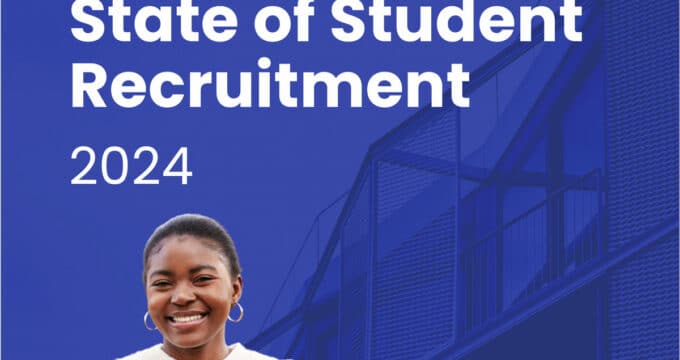It’s a matter of time: The importance of speedy response to student enquiries
The following article is adapted from the upcoming edition of ICEF Insights magazine. The print edition will be available at ICEF Berlin 2023 with the digital edition freely available to download as of 2 November 2023.
There’s not a minute to lose when it comes to Gen Z (aka, the students you’re trying to recruit right now). Consider that:
- When in 2023, Keystone Education Group asked 23,800 students across 195+ countries how a university could improve its communications, “speed of response” was a top three recommendation (24%), along with “availability of information” and “quality of response.” The research firm found that 62% of students expect a response from a university within 24 hours or less, an increase of 21% over 2022.
- Google has found that on average, it takes website users 0.05 seconds to form an opinion about a website, while Forbes Magazine has published research showing that 61% of website users say that if they don’t find what they are looking for within 5 seconds of landing on a webpage, they leave.
And yet, many universities are failing to respond promptly and/or effectively to prospective students. A 2023 “mystery shopping” research project conducted by Edified involving 128 universities in major study destinations found that 1 in 4 student enquiries received no response from a university.
This is a major opportunity lost. UniQuest research has shown that students who make enquiries before they apply represent 17% of all enrolments … and students experiencing “a great enquiry experience” accept admissions offers more than twice as often as others.
Four areas in which Institutions should make sure they are performing well are:
- Responding to students’ enquiries as soon as possible to reduce drop off in the enrolment funnel;
- Communicating with students about expected timelines for decisions;
- Informing students promptly if something is taking longer than expected;
- Processing applications quickly, and once a decision is made, don’t delay in sending admissions offers.
Be proactive rather than reactive
There are numerous points in the enrolment funnel (which describes the stages through which an international student moves from initial interest in an institution towards enrolment) to interact with students. For example:
- Have students commented on your social media posts? Respond quickly and meaningfully. Make sure your social posts and web content are up to date and full of need-to-know information, such as deadlines.
- When students ask for information, do you have marketing automation in place? Marketing automation allows institutions to reply right away and nudge students to another action (e.g., speaking with a student ambassador).
- Have you anticipated the questions students might have when they try to apply? It’s key to have strategies in place so that students can ask for help if needed (e.g., AI chat).
It’s now a widely acknowledged fact that a lynchpin of institutional competitiveness is customer service – and this very much includes prompt responses. Here’s an idea: Wrap up 2023 by conducting a review of how quickly your admissions and related teams can respond to students’ questions. It might set you up for an even better year ahead in 2024.
For additional background please see:















